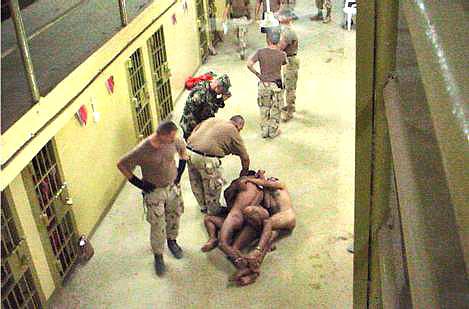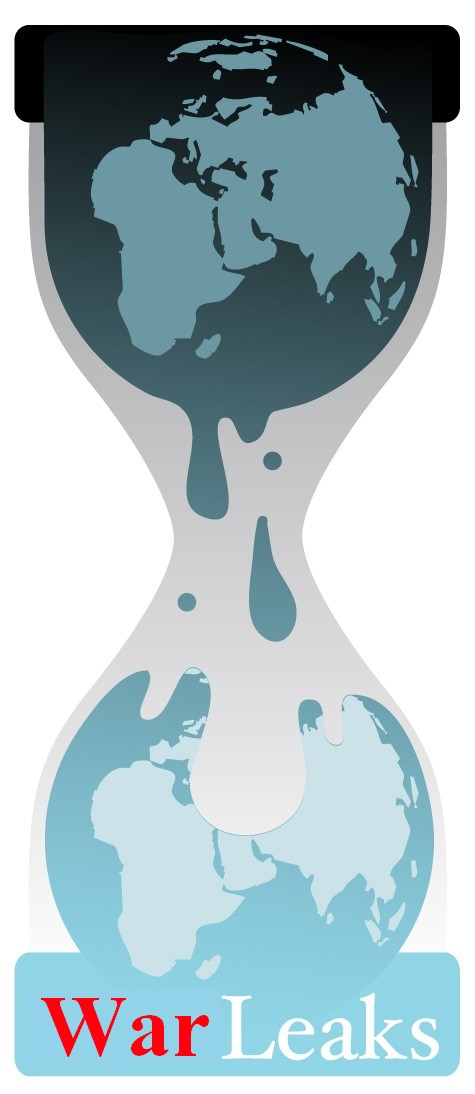 Citizens of the United States today join in celebration of Memorial Day and honor those who have died in American wars from now all the way back to the American Civil War. It is the ninth consecutive Memorial Day during the “war on terrorism,” which was the Bush Administration’s response to the September 11 attacks. The “war on terror,” as the world knows, led to the Afghanistan and Iraq War and countless other covert military operations all aimed at rooting out terrorism.
Citizens of the United States today join in celebration of Memorial Day and honor those who have died in American wars from now all the way back to the American Civil War. It is the ninth consecutive Memorial Day during the “war on terrorism,” which was the Bush Administration’s response to the September 11 attacks. The “war on terror,” as the world knows, led to the Afghanistan and Iraq War and countless other covert military operations all aimed at rooting out terrorism.
The memories of war shared with veterans in communities are, of course, sanitized. Communities do not really tell the stories of war. Members of squads like the “Kill Teams” of Afghanistan do not share photos or cell phone videos they captured when they shot innocent civilians and posed with them. They do not talk about the glory of employing “enhanced interrogation techniques” or torture to gain, often, false information from detainees at Guantanamo or “black” prison sites to better prosecute the war against global terrorism. And probably few could be said to be telling real war stories, like the ones that can be found in the pages of the American literary classic by Tim O'Brien, The Things They Carried.
 In 2010, WikiLeaks revealed through its release of the Iraq War Logs and its partnership with organizations like the Bureau of Investigative Journalism “303 allegations of [detainee] abuse by coalition forces were reported in the military files after 2004.” Then-Defense Secretary Donald Rumsfeld, who just published an op-ed in the Washington Post condemning WikiLeaks while at the same time using the information they have released to prop up his own views on US policy in the “war on terror,” pledged to “make changes as needed” to ensure that Abu Ghraib didn’t happen again.
In 2010, WikiLeaks revealed through its release of the Iraq War Logs and its partnership with organizations like the Bureau of Investigative Journalism “303 allegations of [detainee] abuse by coalition forces were reported in the military files after 2004.” Then-Defense Secretary Donald Rumsfeld, who just published an op-ed in the Washington Post condemning WikiLeaks while at the same time using the information they have released to prop up his own views on US policy in the “war on terror,” pledged to “make changes as needed” to ensure that Abu Ghraib didn’t happen again.
The Iraq War Logs proved changes had not been made. And now, with this new report out from The Investigative Fund at The Nation Institute and PBS’s Need to Know there is further confirmation that perpetrators of atrocities continue to go unpunished, those who allow for systemic abuse to continue have not been held accountable, and nothing has really changed since the Abu Ghraib scandal.
 1. Introduction
1. Introduction
2. Resources for Collateral Murder
3. Resources for War Logs
2010 was, in many ways, the year of the WikiLeaks. Although the organization had been in operation for four years, and had published many high profile leaks, this was the year that WikiLeaks became a household name. Beginning April 2010, WikiLeaks released a succession of leaks apparently sourced from within the United States government, or military, and pertaining to the wars in Afghanistan and Iraq. WL Central's Kevin Gosztala investigated the War Leaks and produced this valuable summary and analysis of their extent and significance. This page is an overview and resource bank.
 UPDATE: Unedited podcast is posted.
UPDATE: Unedited podcast is posted.
This week’s guest is Debra Sweet. She is the Director of World Can't Wait, initiated in 2005 to "drive out the Bush regime" by repudiating its program, forcing it from office through a mass, independent movement and reversing the direction it had launched. Based in New York City, she leads World Can't Wait in its continuing efforts to stop the crimes of our government, including the unjust occupations of Iraq and Afghanistan and the torture and detention codes, as well as reversing the fascist direction of U.S. society, from the surveillance state to the criminalization of abortion and immigrants.
Her writing can be read here. Her latest piece is “Nakedness, Justice and Bradley Manning.”
To mark the eighth anniversary of the Iraq War, Sweet discusses some of the revelations that have come from WikiLeaks on the Iraq War thanks to Cablegate and the Iraq War Logs and the "Collateral Murder" video.
Sweet addresses how WikiLeaks revelations on the wars are fueling antiwar resistance in America. She will highlight upcoming actions on March 19 and 20 in the United States to oppose ongoing US wars and occupations and to support Bradley Manning, the alleged whistleblower being held at Quantico Marine Brig in Virginia.
Following Sweet’s interview, some time was spent doing a roundup on some of the past week’s news related to WikiLeaks. The milestone that was reached this week, the 100th Day of Cablegate, was recounted.
To listen to the podcast, click play on the widget below. Or, go to CMN News.
The World Will Become Better. 
Soft as filigree,
damming as ice;
we shudder now,
when we hear "nice"
Your day at the office,
forty minutes of it we viewed.
twenty-four hours later,
your corporate masters decried,
"the footage was skewed"
As if you hadn't killed,
Children, Journalists, Dads,
leaving their ruined bodies,
suffering in the Iraqi sands.
You said, "well it's their fault"
"for bringing their kids into a battle"
Secure in the sky,
safe from the child's death rattle.
The callousness of your action,
your eagerness to kill
the slight gratification in your voice,
haunts me still.
What was done, by you and then,
reminds me of another war,
another "them"
Untermensch "they" were called,
by those solders,
who seemed
to enjoy it all.
But that was a "good" war,
as if killing isn't anything but.
they too laughed it off
making jokes not meant to cut.
And if we hold up a mirror,
to compare the past and today,
what do you see?
are there any differences in play?
What happens now? What’s the point? I’ve heard this question a good few times over the last few days. Sometimes it’s not really motivated by a desire to find the answer. In these cases, it’s just a rhetorical question undercutting the importance of the documents or reflecting general cynicism about the susceptibility to change of the networks of power held culpable in the logs. I will write more about this later.
Glenn Greenwald tweeted a link to an article on FoxNews, by Christian Whiton, in which Whiton calls for executive action on the threat that Wikileaks poses to the United States. The article is riddled with factual errors. For example, it perpetuates the false belief that the Iraq War Logs, released by Wikileaks on Friday, contains the names of informants, who might therefore be in danger. It has been well publicized by now that the Iraq War Logs are thoroughly redacted, but this doesn’t stop the propaganda apparatus in the United States pretending otherwise.
The Afghanistan documents released by Wikileaks were criticized for not having enough material redacted. The Iraq documents are criticized for having too much redacted. The US government says there is nothing interesting or newsworthy in any of the information. The US military says the information contains important secrets that the public should not know. Some members of the public say they contain important secrets that we all desperately need to know. Have we all completely forgotten?
The medium is the message.
Theme by Danetsoft and Danang Probo Sayekti inspired by Maksimer